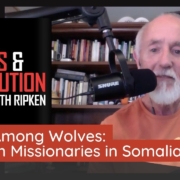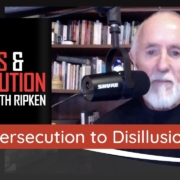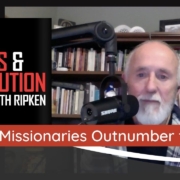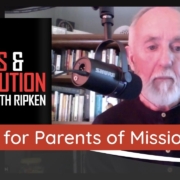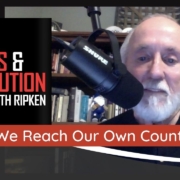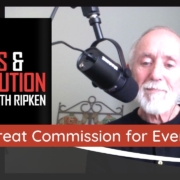Sheep Among Wolves: Christian Missionaries in Somalia
Nik Ripken spent seven years in Somalia, a country ravaged by war and famine. In this podcast episode, he shares his experiences of bringing teams of volunteers into the country and the impact they had as Christian missionaries in Somalia.
Be sure to subscribe to the Witness & Persecution Podcast on your favorite platform.
Ripken’s Impact in War-Torn Somalia
Ripken explains that Somalia was a challenging place to work. The country was torn apart by conflict, with different factions vying for control. The people were suffering from famine, and there was a severe lack of resources. Despite these difficulties, Ripken felt called to help the Somali people.
There’s really good news and there’s really bad news. Because the need was so great, we couldn’t live there as a family. It would have been impossible. There’s 93% malnutrition. We would have been raided just because of what they would’ve thought we brought in to feed our children and to feed Ruth. We were in there for about a year before the military came in.
To bring volunteers into the country, Ripken had to navigate a complex web of relationships with local leaders and negotiate with armed groups for safe passage. He also had to find ways to provide food, water, and shelter for the teams.
Despite the challenges, Ripken and his teams were able to make a significant impact. They provided medical care, food, and water to those in need. They also started schools and provided training for teachers. Through their efforts, they were able to bring hope to a people who had experienced so much suffering.
It Takes Ability and Courage to Work in Conflict Zones
Nik Ripken faced enormous challenges in providing aid to the suffering people. He emphasizes the need for volunteers with both ability and courage to work in such difficult circumstances.
Ripken’s team operated five centers, each feeding 10,000 people per day. However, even the food distribution sites were not immune to danger, as they had to be surrounded by razor wire for protection. People would line up before dawn, and if the food did not arrive in time or the military was not present to provide security, the volunteers would have to quickly flee.
Ripken found that some of the nurses from the United States struggled with the harsh living conditions and the challenging environment, and he realized that this approach was not sustainable. He asked his leadership to lend him career workers from Southern Africa for one-month periods instead.
They had some toughness. They had developed some callouses on their hands, feet, and heart. Their adjustment, while it was difficult… it wasn’t like they were going to fall apart on us or anything. […] They hadn’t practiced that much medicine, but I could do it.
These career workers had already learned the local language and developed resilience, making them better able to handle the challenges of working in Somalia. As a result, they were more likely to be successful and less likely to fall apart on the job.
Ripken’s experience in Somalia highlights the need for volunteers with both ability and courage to serve in difficult conditions, and the importance of learning from experience to develop sustainable solutions.
Christian Missionaries in Somalia Provide Medical Aid
Nik Ripken’s experience at a village clinic in Somalia highlights the harsh reality of the healthcare situation in many developing countries. According to Nik, everyone he saw in the clinic had multiple health issues, including eye infections, ear infections, skin infections, malaria, and parasites. He observed that everyone needed antibiotics, as someone was going to have diarrhea, cholera, and typhoid.
The people of Somalia face tremendous health challenges due to the lack of access to basic healthcare services. The lack of resources, infrastructure, and trained healthcare professionals make it difficult for people to receive even the most basic medical care, leading to high rates of illness and death.
In the clinic, Nik noticed that there was a long line in front of every nurse, and the line in front of him was even longer because the people believed he was a doctor. However, Nik was not a medical doctor; he held a doctorate in ministry. Despite this, he listened to the nurses and followed their directions on how to treat each patient.
Nik’s experience highlights the significance of empathy, compassion, and collaboration when providing aid to those in need. By listening to and following the guidance of trained professionals, Christian missionaries in Somalia addressed a multitude of healthcare challenges.
Nik Ripken’s experience in Somalia underscores the importance of providing basic healthcare services to people in developing countries. It also emphasizes the value of empathy, compassion, and collaboration in providing aid to those in need. By working together and leveraging our resources, Christian missionaries improve the lives of those who are facing significant health challenges.
Still, Nik says we’re “2000 years too late” in bringing Christ to Somalia.

